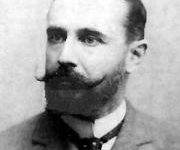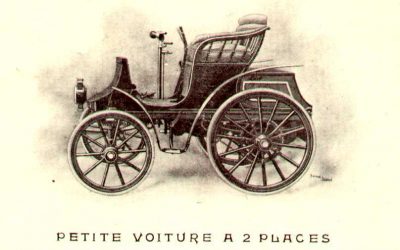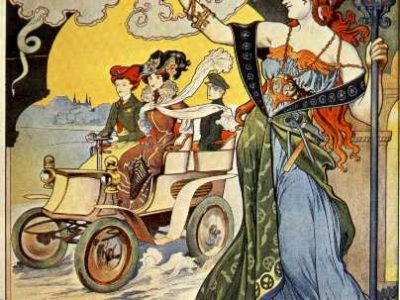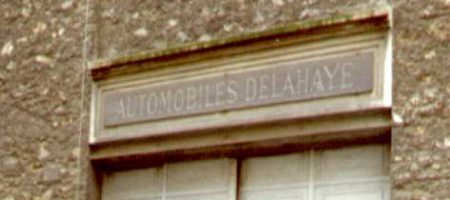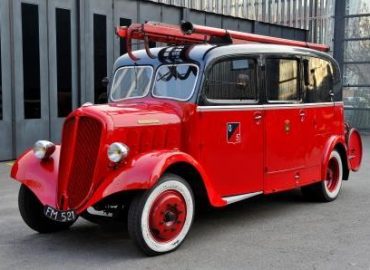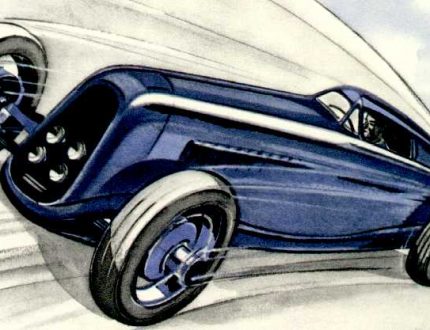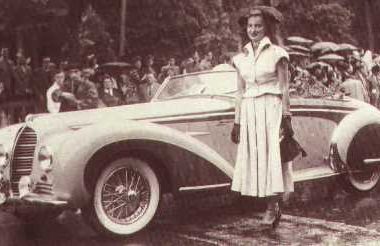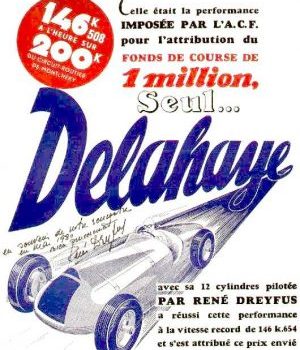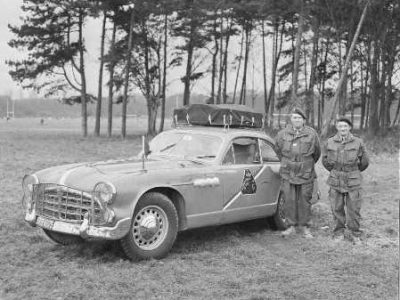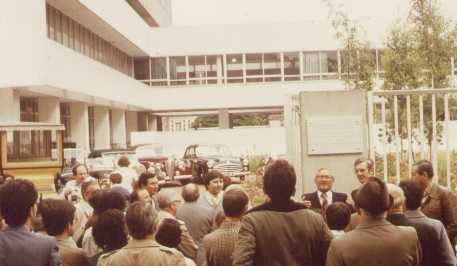Emile Delahaye was born in Tours in 1843. He studied in Angers, and became an engineer in applied arts and crafts in 1869. After having worked at Cail’s in Brussels, he came back to the town where he was born, and got married in 1873. Six years after, that is in 1879, he took over Julien Bréthon’s business, specialised in manufacturing equipment and kilns for ceramists.
He soon made the firm evolve, and directed it towards mechanical appliances, mostly manufacturing pumps and engines. Although he had studied above all steam developments, he found himself tempted by the latest inventions of his time, such as gas engines. He furthered this technique and had several patents registered.
In 1888, he designed an internal combustion engine for the shipping industry. But in 1890 already, he thought of developments for the automobile industry, made his first car in 1894, which he showed to the public the same year at the first Motor Show in Paris, inside the Cycle Show. At this time, there were 75 workers in the Delahaye workshop 34, rue du Gazomètre in TOURS.
With a view to promote the name Delahaye, Emile Delahaye decided to enter for famous motor races like Paris-Marseilles in 1896, with he himself behind the wheel of Delahaye cars.
The quality and results of his cars fully designed by Delahaye (even the engine, which was rare enough at this time) convinced numerous and often prestigious customers like the Duchess of Uzès, one of the very first customers.
In 1897, Emile Delahaye realised that his firm was not big enough to meet the demand of customers. His poor health also encouraged him to look for a solution. He opened his heart to a few people, among which one of his customers, Georges Morane, who raced in competitions with his own Delahaye
There was then a coincidence favourable to Emile Delahaye : Georges Morane and his brother-in-law Léon Desmarais, who had just inherited a mechanics company located in Paris, 10, rue du Banquier, 13ème from their father and father-in-law Paul Morane, were just looking for new outlets.
The deal was soon made, and the firm moved to Paris in 1898, where it rapidly grew and developed. At the beginning, Emile Delahaye joined with Léon Desmarais and Georges Morane, but he gave up a short time after, to retire to the French Riviera, where he died in 1905.
Until 1933, the Delahaye Cars Company (Société des Automobiles Delahaye) produced cars which were reputed for their solidity and stamina but also lorries, engines for industrial purposes and competitive motorboats (several speed world records with boats).
The company also specialised in manufacturing fire fighting equipment, and it even manufactured a huge agricultural machine, which was called “sun-flower plough” (“charrue Tournesol”).
From 1927 to 1933, Delahaye -in collaboration with Chenard & Walker- produced medium-class cars in small numbers, with a great reputation for being robust and sturdy. In 1933, Delahaye took over the car manufacturer Chaigneau-Brasier.
1933 was a turning point in the make’s history. From that year on, the Morane family directed Delahaye towards the manufacturing of prestige cars and the participation in famous motor racing events, while maintaining the production of commercial vehicles and of fire fighting equipment. The takeover of the make Delage in 1935 made its contribution to this reorientation, which in the end was crowned with success.
Throughout its history, from 1898 to 1954, the firm was directed by the Morane family : Léon Desmarais and Georges Morane first, then François Desmarais (Léon’s son) and Pierre Peigney (Léon Desmarais and Georges Morane’s nephew). But the make owes a great deal of its success to Amédée Varlet and Jean François, the designers of the successive Delahaye studies and models, and also to the untiring Charles Weiffenbach, the so-called “Monsieur Charles”, director of manufactures and in charge of competition department.
The model that made the greatest contribution to the reputation of the make was to be the famous type 135 (and all the related versions). Designed in 1934, the type 135 won renown through the results it obtained in every motor racing event that occurred before World War 2 : victories at the “24 heures du Mans”, the Monte-Carlo Rally, the Paris-Saint-Raphaël motor race etc.
These chassis, fitted with bodies designed by the greatest coachbuilders of the time, won numerous cars beauty contests (“Concours d’Elégance”). Now known in the whole world, Delahaye became the provider of many kings and famous show-business people.
Another important victory that contributed to the make’s reputation is that of the Delahaye 12 cylinders in “the Million” event in 1937.
After the Second World War and in a context particularly hard for luxury cars manufacturers, the firm managed to survive mainly thanks to the commercial and fire fighting vehicles it sold, but also thanks to the reconnaissance light vehicles (in French VLR) it sold to the Army.
The type 135 and the models that stemmed from the type 135, still really valued, participated each year to the Grand Palais Motor show, on the Delahaye’s stand and on the coachbuilders’. As for the type 175, though winner of the ACF Grand Prix in Compiègne in 1949 and of the Monte-Carlo Rally, it could not achieve the expected success.
In a last burst of energy, Delahaye released the type 235 in 1951. For the reason that it was stemming from the pre-war type 135, that it was too expensive, and with a structure that was beginning to date, it could not be successful in the long term. However, the Delahaye 235 had its hour of glory in 1953 when it set a record for the crossing of the African Continent from Cape Town to Algiers.
Delahaye could not escape the difficulties that put an end to the French luxury cars makers in the fifties.
In 1954, the negotiations that had opened with the Hotchkiss Cars Company (Société des Automobiles Hotchkiss) concerning manufacturing agreements resulted in a merger, and eventually came to the creation of the Hotchkiss-Delahaye Company (Société Hotchkiss-Delahaye). The latter in turn stopped producing private cars in 1955.
Where you could find the Delahaye workshops now stands the Paris National School for Biology and Chemistry.
In 1981, the Delahaye Club affixed a plaque with the text below :
“Here stood, from 1898 to 1954, the DELAHAYE Workshops, world-wide famous. With its record of motor racing achievements, DELAHAYE contributed to the prestige of the French Automobile.”
20 June 1981




